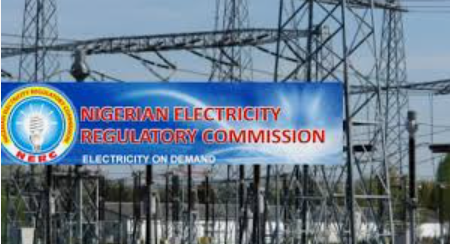The escalating cost of electricity subsidies in Nigeria has become a pressing concern, reaching a staggering N762 billion within the first four months of 2025. This financial burden, which translates to an average monthly subsidy of N190.5 billion, is significantly impacting the nation’s fiscal stability. A breakdown of the figures reveals a consistent upward trend, with N178 billion disbursed in January, followed by N194 billion in both February and April, and a slight dip to N192 billion in March. This alarming rise prompts a deeper examination of the underlying issues and the potential consequences for the Nigerian power sector.
The Nigerian Electricity Regulatory Commission’s (NERC) Multi-Year Tariff Order (MYTO) for April sheds light on the government’s ongoing subsidization of electricity tariffs for customers in Bands B to E. While Band A customers pay a cost-reflective tariff exceeding N209 per kilowatt-hour (kWh), other bands pay a significantly lower average of N116/kWh. This disparity underscores the government’s effort to cushion the impact of cost-reflective tariffs on a majority of consumers. However, this approach has placed an immense strain on the national budget, raising questions about its long-term sustainability. The April MYTO details the specific subsidy allocations for each distribution company (Disco), highlighting the significant financial commitments required to maintain the subsidized tariff structure.
The government’s commitment to maintaining subsidized tariffs is evident in NERC’s declaration that tariffs for Bands B-E will remain frozen at December 2022 rates, pending further policy directives. This decision, while intended to provide relief to consumers, perpetuates the cycle of escalating subsidy costs. Furthermore, it creates a financial bottleneck for the Discos, hindering their ability to invest in infrastructure upgrades and improve service delivery. This precarious situation necessitates a comprehensive review of the existing tariff structure to address the growing financial burden on both the government and the power sector.
The increasing financial strain imposed by electricity subsidies has prompted high-level discussions within the government regarding potential tariff hikes. Minister of Power Adebayo Adelabu and Presidential Energy Advisor Olu Verheijen have both publicly acknowledged the need for adjustments to the current system. Verheijen has pointedly argued that the existing subsidy structure disproportionately benefits the wealthiest 25% of the population, diverting resources away from those genuinely in need of support. Minister Adelabu, recognizing the mounting debt burden on Discos due to unpaid subsidies, has proposed a tariff adjustment strategy based on consumption hours for customers in Bands B and C. This approach aims to mitigate the government’s subsidy burden while ensuring a more equitable distribution of costs.
International organizations like the International Monetary Fund (IMF) have also weighed in on the issue, urging the Nigerian government to phase out the costly and regressive electricity subsidies. The IMF’s recent report highlights that these subsidies consumed 3% of Nigeria’s Gross Domestic Product (GDP) in 2024, a significant increase from 1% the previous year. This underscores the unsustainable nature of the current approach and its negative impact on the nation’s fiscal health. The IMF’s recommendation to implement tariff adjustments, coupled with strengthened social safety nets, offers a potential pathway towards a more sustainable and equitable energy sector.
The debate surrounding electricity tariffs in Nigeria is a delicate balancing act between affordability for consumers and the financial viability of the power sector. The current trajectory of escalating subsidies is clearly unsustainable, requiring a decisive shift in policy. Balancing the need for cost-reflective tariffs with social protection measures for vulnerable populations will be crucial in navigating this complex challenge. Implementing targeted subsidy programs and improving energy efficiency are essential steps towards achieving a sustainable and equitable energy future for Nigeria. As public discourse intensifies, finding a solution that addresses both fiscal responsibility and social equity will be paramount to ensuring the long-term health of Nigeria’s power sector.














